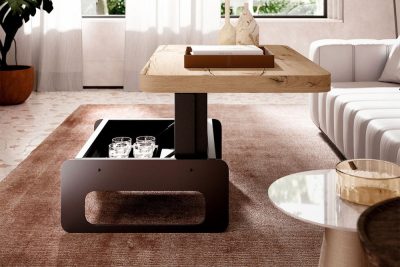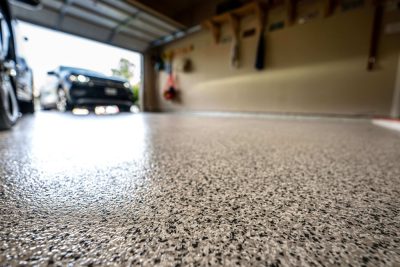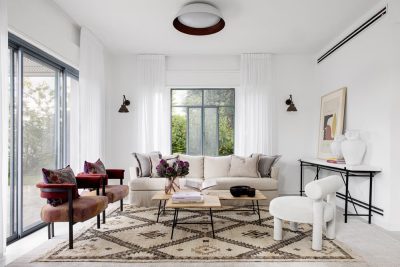
As we reach fifty and above, our homes become safe havens that provide comfort and relaxation after long, tedious days. The longer we stay in our homes, the more sentimental value, and treasured memories they possess, highlighting the importance of proactively protecting them against threats and vulnerabilities such as burglaries, damage, intrusion, and other emergencies.
But how can you enjoy greater peace of mind in your own home? In this article, we explore several different strategies over-fifties can use to protect their home from threats. From taking out relevant home insurance and investing in home security equipment to having an emergency plan and understanding scams – keep reading to discover how over-fifties can protect their home from threats.
Have A Home Insurance Policy In Place
Although it might not be a legal requirement like car insurance, having a home insurance policy is essential in your home protection toolkit. Whether your house falls victim to thieves or is damaged by flooding, a home insurance policy will cover your house and belongings against various natural disasters and other emergencies.
Generally, you can purchase two types of home insurance, building or contents insurance, or as part of a combined home insurance policy. The good news is that if you’re a card-carrying AARP, you can get AARP home insurance at a discounted rate from authorized partners like The Hartford.
From AARP home insurance and professional liability insurance, they provide various kinds of insurance designed to protect you in both your personal and professional environments. Consider visiting their website to discover more about home protection for AARP members and how their service could help people in their fifties feel more secure in their homes today.
Never Let Your Home Look Empty
We can’t stay inside our houses for the rest of our lives; there comes a time when you’ll have to leave your four-walled sanctuary for a couple of days when you go on holiday. However, if criminals discover that a house could be empty, it becomes a prime target for theft, damage, or other threats because it’s unattended and, therefore, easier to target.
So, how do you make your house look occupied even when it isn’t? Thankfully, there are several ways to achieve this, from putting a block on your mail and leaving the blinds/curtains open to using a timer to turn lights on/off and mowing your lawn before going away. All these can give the illusion of an occupied house, even if you’re halfway across the world, discouraging potential criminals.
Use Security Tech
In today’s digital world, it can take plenty of work to keep track of all the technological advancements, especially as you get older! But there are loads of security tech, such as security cameras, motion detectors, and security alarms, on the market that can help you minimize potential threats to your property.
Plus, don’t worry if you’re not the most tech-savvy person; you can find reliable security tech that can be installed at home and is relatively easy to use. To determine which pieces of kit best fit your home, sweep your house inside and out and pinpoint any insecurities or enlist the services of an engineer who can carry these checks out on your behalf and recommend as they see fit.
Secure your doors and windows
Yes, securing your doors and windows is an important part of protecting your home. Here are some tips to help you secure your doors and windows:
1. Install deadbolts: Deadbolts are more secure than regular locks and can make it harder for intruders to break in.
2. Reinforce doors and frames: Consider reinforcing your doors and frames with metal plates or bars to make them stronger and more difficult to break through.
3. Use security bars: Installing security bars on windows can make it harder for intruders to gain access.
4. Consider window film: Applying window film to your windows can make them stronger and more resistant to breaking.
5. Don’t forget sliding doors: Sliding doors can be especially vulnerable to break-ins, so make sure to install locks or blocking devices to secure them.
By taking these steps to secure your doors and windows, you can help ensure that your home is well-protected against potential threats.
Install outdoor lighting
It should be no surprise that security lighting will, in fact, increase security around your home. The bright lighting will deter intruders since there are fewer shadows for them to creep around in. Your neighbors can also keep an eye on your home better with security lighting if you’re out for the night.
To make an informed choice about what kind of security lighting you’d like on your property, it’s best to start with a good understanding of what’s out there.
– Simple outdoor lighting that you can switch on and off from inside
– Motion sensor lighting that switches on when it detects movement
– Timed lights that you can schedule to turn on during the evening, or even when you are away to give the impression that someone is home
– Intelligent lighting that you can switch on and off from your smart phone
– Security lighting that’s connected to an alarm system to deter intruders
– Ambient or spot lighting
Lighting up your outdoor spaces is a quick and easy way to make a big difference to the look and feel of your property at night.








